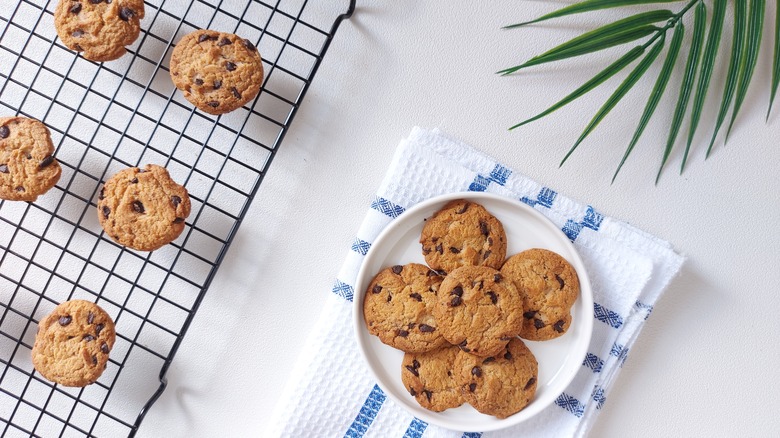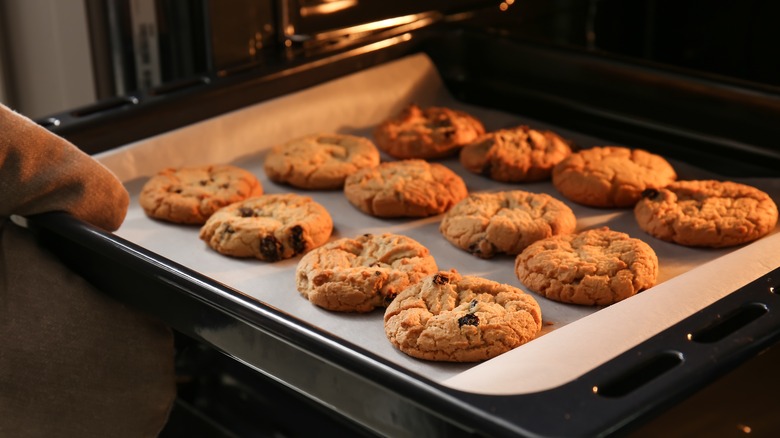The Reason You Shouldn't Bake Cookies On Aluminum Foil
Aluminum foil is a kitchen workhorse — no wonder it's a $25 billion industry globally, with more than 870,000 metric tons produced in 2022 in the U.S. alone. Foil has plenty of good uses, from keeping dishes warm to a hack that helps you flip food more easily. But there's one thing you'd be better off skipping foil for: baking cookies.
Baking on foil is actually a common mistake people make with cookies. Why? Because of the way aluminum conducts heat, you shouldn't line your baking sheet with foil before dropping your raw dough. The cookies won't bake evenly — and are actually more likely to burn on the bottoms.
The best surfaces for baking cookies are actually ones that are heat-resistant, like parchment paper, which is coated in a thin layer of silicone. Other materials that are relatively poor heat conductors work too, which is why a pizza stone is actually an optimal cookie-baking option. For the reason behind this phenomenon, we have to look to science.
The science behind why aluminum foil is bad for cookies
Aluminum is an excellent conductor of heat, which is why it often makes up the interiors of cookware and is so effective at keeping dishes hot. However, this property will get you in trouble when you're channeling your inner Mrs. Fields.
Among all common metals, aluminum has one of the highest thermal conductivity ratings, which is a measure of how quickly and efficiently a material transfers heat energy. At 237 watts per meter-Kelvin, aluminum moves this heat energy nearly five times more quickly than cast iron — which holds onto heat, making it best for searing foods like steak — and nearly 10,000 times better than air.
Back to the kitchen: If you line your baking sheet with foil, the part of the cookie in contact with the metal receives substantially more intense thermal energy than the part exposed to the hot air of the oven. Cookies baked on foil are liable to become overly crispy or burnt while leaving the remainder undercooked. So if your cookies come out raw, the reason could be your oven — or the culprit could be your foil-lined cookie sheet.

